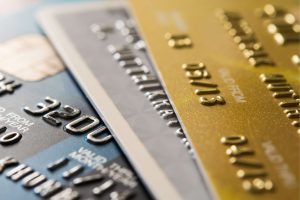When it comes to credit cards, I like to keep it simple: a single card that delivers a reliable 2 percent cash back for all purchases. There are cards that offer a better return on investment, but only for a limited number of categories: 3 percent back for gas, or 4 percent for groceries, for example. But that higher return for one category of spend is more than offset overall by a lower return on other purchases. Consider the recently introduced Savor card from Capital One, which rewards cardholders as follows:
The Capital One Savor Card
- Earn 3% cash back on dining
- Earn 2% cash back on groceries
- Earn 1% cash back on other spend
- Annual fee: $0
- No foreign transaction fees
- Annual percentage rate (APR): 0% for first 9 months; 15.49%, 20.49%, or 24.49% depending on credit
- Sign-up bonus: $150 cash bonus after spending $500 within 3 months
Sure, that 3 percent rebate on dining charges is enticing. But if I were to use that card consistently, my average rebate for all spend would likely fall below 2 percent. And I can get a solid, predictable 2 percent back from any of the following:
The Citi Double Cash Card
- Cash back: 2% (1% when you buy, the second 1% when you pay your credit-card bill)
- Annual fee: $0
- Disclosure: Citi is an Airfarewatchdog advertiser
The Fidelity Rewards Visa Signature Card
- Cash back: 2%
- Annual fee: $0
- Comment: The cash rebate must be deposited initially in a Fidelity account, so cardholders must be Fidelity customers.
And the newest among the 2 percent rebate cards:
The PayPal Cashback Mastercard
- Cash back: 2%
- Annual fee: $0
- Comment: Cash rebate is initially deposited into cardholders' PayPal accounts. From there, it can be transferred to a user's bank account.
Those cards establish 2 percent as a benchmark, against which all other cash-back cards must be judged. Most come up short.
But there's a new credit card issued by Barclays that might just net a cash rebate over 2 percent, when all spend is factored in:
The Uber Visa Card
- Earn 4% cash back on dining
- Earn 3% cash back on hotel and airfare
- Earn 2% cash back on online purchases (including Uber rides)
- Earn 1% cash back on other spend
- Annual fee: $0
- No foreign transaction fees
- Annual percentage rate (APR): 15.49%, 20.49%, or 24.49% depending on credit
- Sign-up bonus: $100 cash bonus after spending $500 within 3 months
While I rarely use Uber, most of my day-to-day shopping is online (Amazon Prime member), so that would amount to a substantial rebate at the 2 percent level. I also spend significant amounts on dining out, which would be rebated at a hefty 4 percent. Add in the 3 percent rebate for travel expenses, and my overall return for a month's worth of spending could very well exceed 2 percent.
Again, that's the likely return-on-investment given my particular spending habits. Your results will vary, perhaps considerably, according to your own spending behavior.
Bottom line: If there's a chance your overall rebate would exceed 2 percent, the Uber card is well worth considering. And with no annual fee, it's easy enough to get the card and see how it performs over a one- or two-month period. If it returns more than 2 percent, you'll have found a new everyday-spending card.
Editor's Note: This content is not provided by any bank, credit card issuer, airline, or hotel chain. Any opinions, analyses, reviews or recommendations expressed here are those of the author's alone, and have not been reviewed, approved, or otherwise endorsed by the aforementioned entities.






